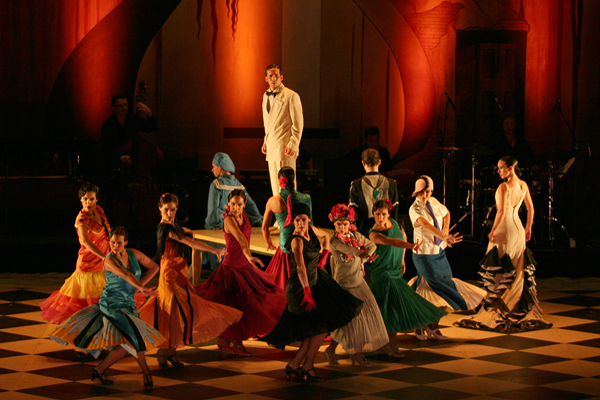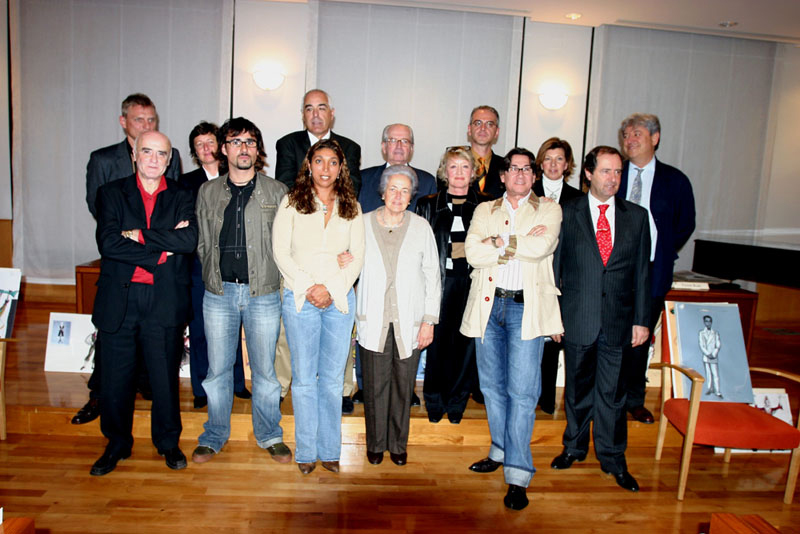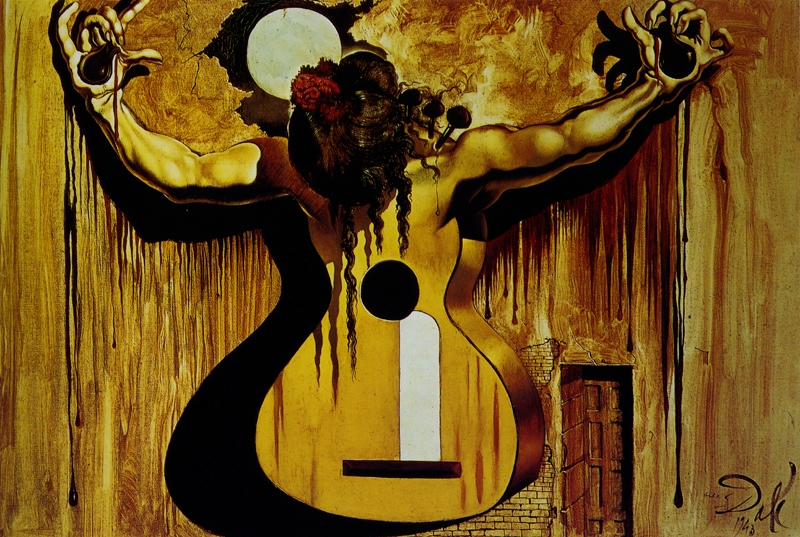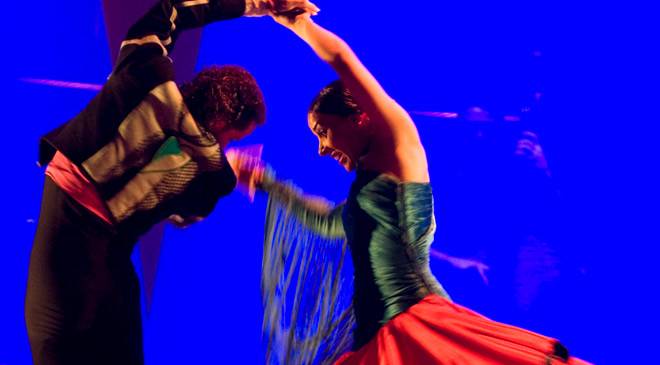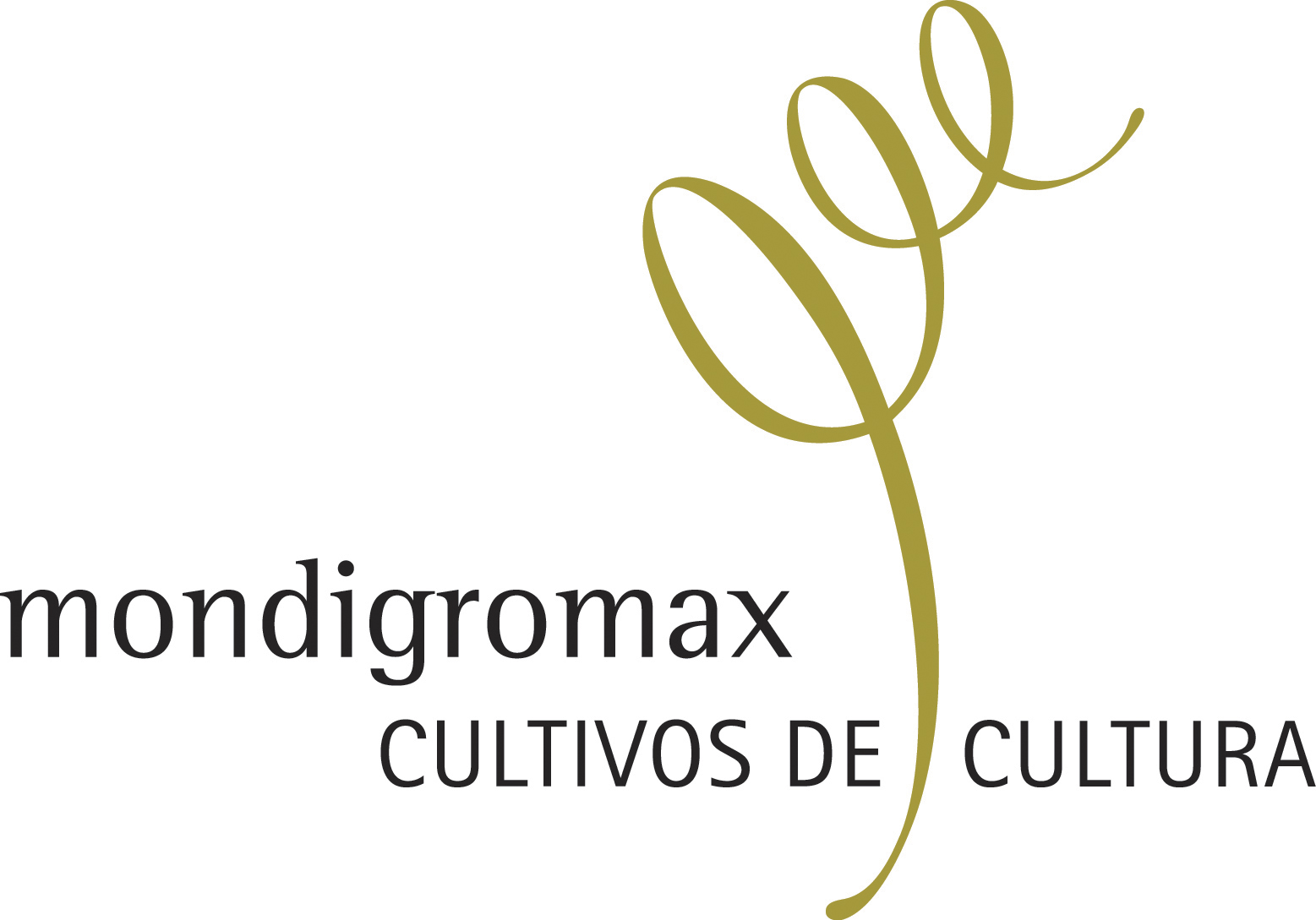Premiere > Peralada
Tribute to Salvador Dalí, 100 Years
Tribute to Salvador Dalí, 100 Years
El sombrero de tres picos / El café de Chinitas

DANCE-BALLET
El sombrero de tres picos / El café de Chinitas
Centro Andaluz de Danza (Sevilla, Spain)
Direction and choreography: José Antonio Ruiz de la Cruz, commonly known as “José Antonio.”
Set design and costume designs: original by Salvador Dalí
Costumes (reconstruction and design): Yvonne Blake
Co-production Castell de Peralada Festival, Santander International Festival, San Sebastián Musical Fortnight, Granada International Music and Dance Festival, Centro Andaluz de Danza of the Junta de Andalucía.
| Under the watchful eye and attentive ear of Luís Polanco. |
August 18, 2004
World premiere for the Castell de Peralada Music Festival (Girona)
El sombrero de tres picos is a ballet by Spanish composer Manuel de Falla and choreography by Léonide Massine based on the homonymous novel by the nineteenth-century writer Pedro Antonio de Alarcón. After its premiere in London on July 21, 1919, the work was a resounding success, praising the successful synthesis of music, dance, drama and decoration. This premiere took place at the Alhambra Theater in the British capital under the baton of Ernest Ansermet and sets and costumes by Pablo Picasso.
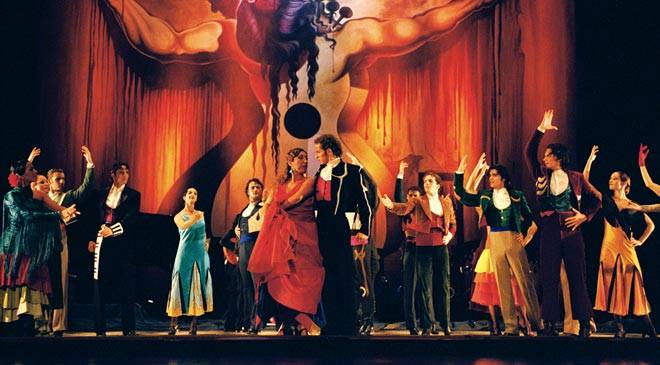
Production coordinated by Mondigromax:
August 18, 2004
World premiere for the Castell de Peralada International Music Festival, Girona
El sombrero de tres picos
Music: Manuel de Falla
Choreography and stage direction: José Antonio
Dancers: Centro Andaluz de Danza, Seville
Costumes (reconstruction and design): Yvonne Blake
Reconstruction of curtains: Jordi Castells
Lighting: Juan Gómez Cornejo
El café de Chinitas
Based on the popular songs of Federico García Lorca
Choreography: José Antonio
Musical direction and arrangements: Chano Domínguez
Stage, vídeo and spatial direction: Lluís Danés
Dancers: Centro Andaluz de Danza, Seville
Live Music: Chano Domínguez and his Group
Singer: Esperanza Fernández
With: Ursula López, Elena Algado Díaz, Miguel Ángel Corbacho Castro
Costume designer: Yvonne Blake
Reconstruction of the curtains: Jordi Castells
Lighting: Joan Teixidó
Production manager: Dietrich Grosse / Mondigromax
Co-production Festival Castell de Peralada, Festival Internacional de Música y Danza de Granada, Quincena Musical de San Sebastián, Festival Internacional de Santander y la Consejería de Cultura de la Junta de Andalucía.
Press quotes
Two successes that are based on the precise conjunction of first-class ingredients. Two cocktails full of genius acclaimed by the public. Begoña Barrena, EL PAÍS
Another of the elements where “José Antonio” uses the symbology are the costumes and we see this in the work of the Café de Chinitas (2004). We collect the exact words that the choreographer captures in the book El vestuario en el Ballet Nacional de España (2009), a work full of symbolic values: This world of symbols, together with the depth and simplicity of Lorca’s Popular Songs, constitutes an ideal vehicle to create a show that becomes almost an invocation to Art, Beauty and Pain to unite them again, beyond time, to Salvador and Federico. (Blake and BNE, 2009, https://www.csdanzamalaga.com/wp-content/uploads/2023/02/Danzaratte-13-04-La-coreografia-de-Jose-Antonio-Ruiz.pd
The Malaga music café of that name is the center of this ballet created in its first version by the legendary Encarnación López, ‘la Argentinita’.
El Café de Chinitas is a ballet that the dancer and choreographer José Antonio Ruiz created for the Centro Andaluz de Danza, which premiered in 2004 at the Castell de Peralada Festival. It is inspired by the curtains that Salvador Dalí painted as a tribute to Federico García Lorca commissioned by the legendary dancer Encarnación López, ‘la Argentinita’, for its premiere in the United States of America in 1943.
Upon being named artistic director of the National Ballet of Spain again, José Antonio Ruiz chose this work for his first program of performances, premiering it at the Granada International Music and Dance Festival in 2005. In addition to the homage to Dalí and Lorca (several of the “Popular Songs” compiled by the poet), the figure of Antonio ‘the Dancer’ is also present, in memory ten years after his death. The work contains music by Joaquín Turina, under the ‘jazzistic’ sieve of the pianist Chano Domínguez.
https://www.diariodesevilla.es/ocio/Cafe-Chinitas-Antonio-Ruiz-Sevilla_0_187181343.html
